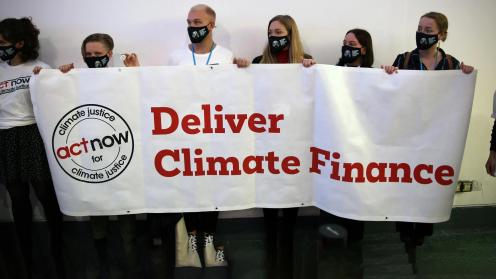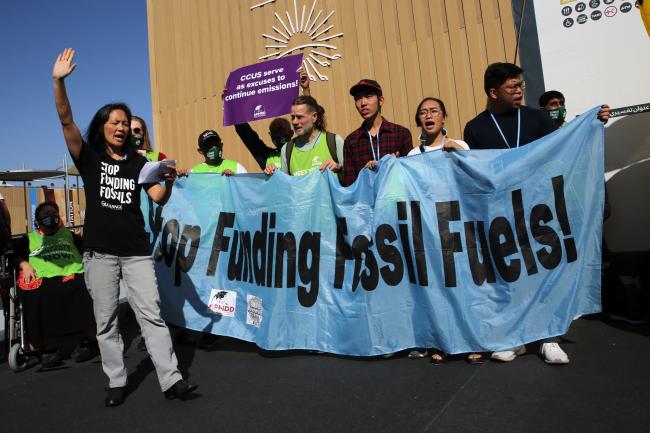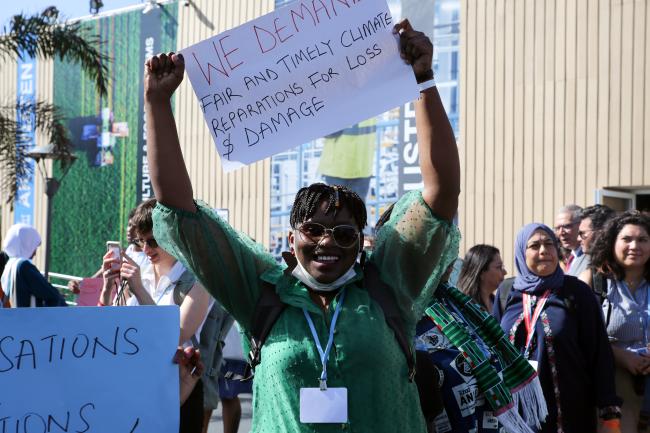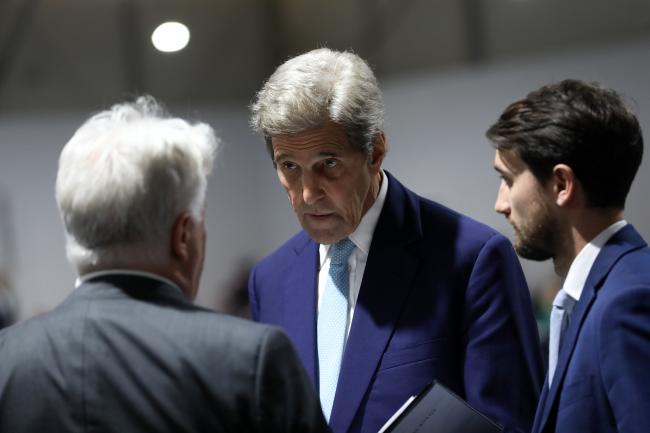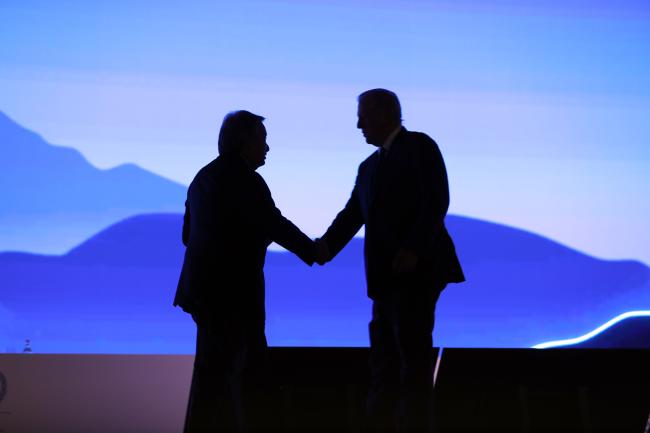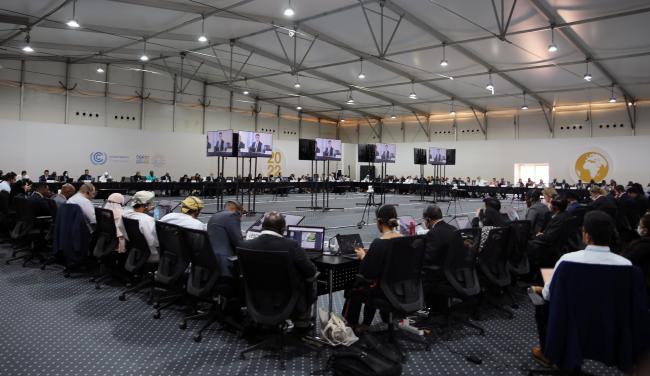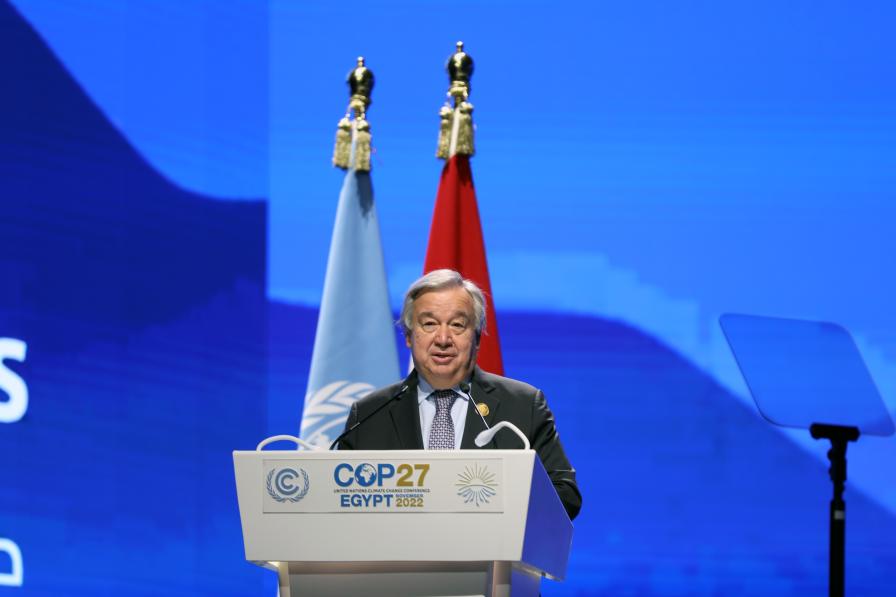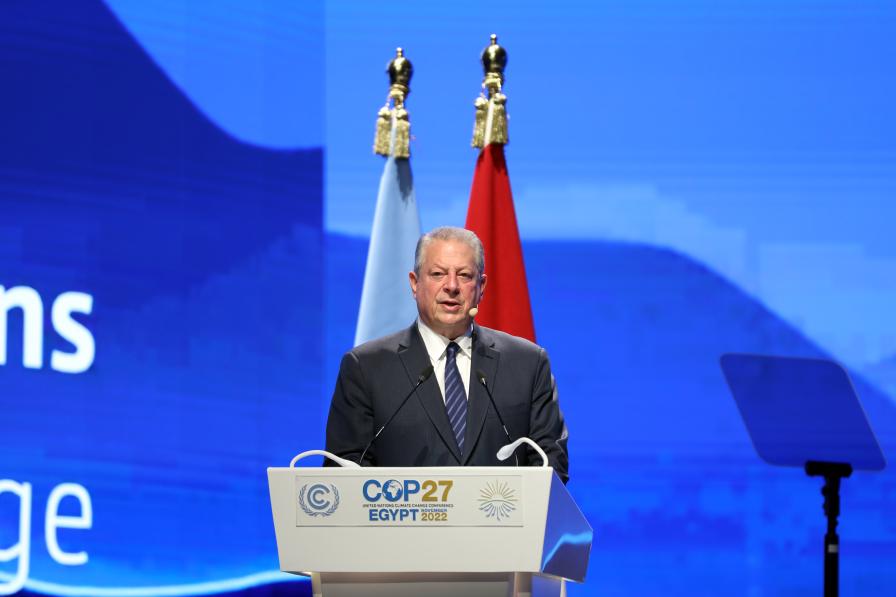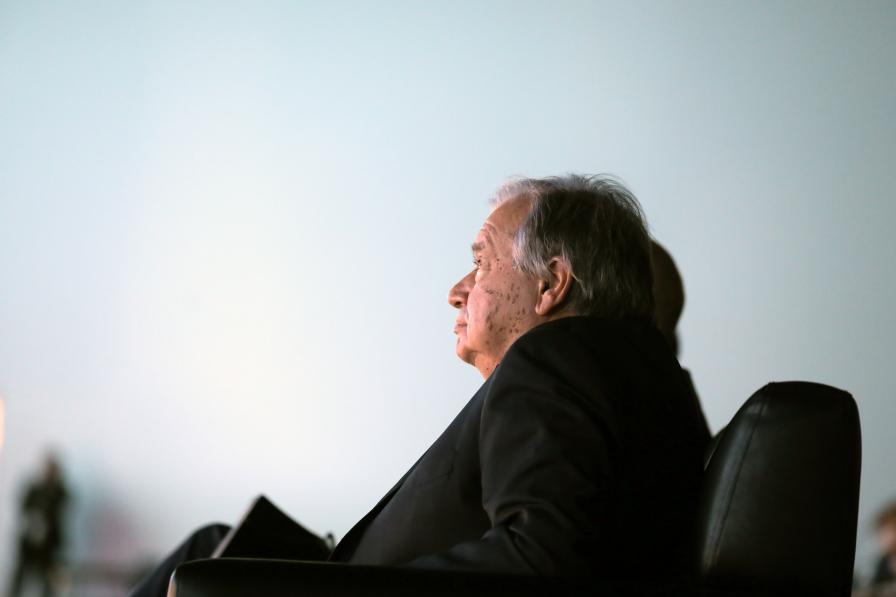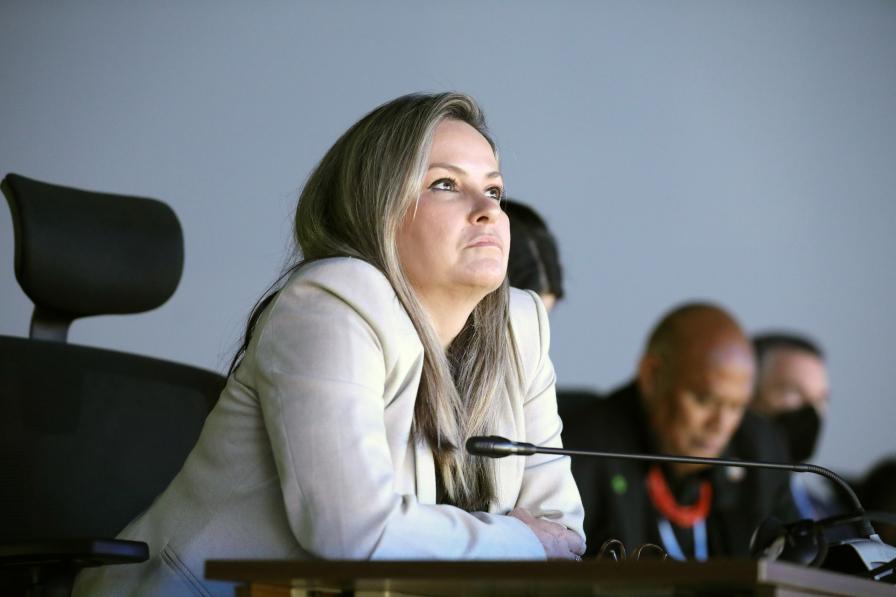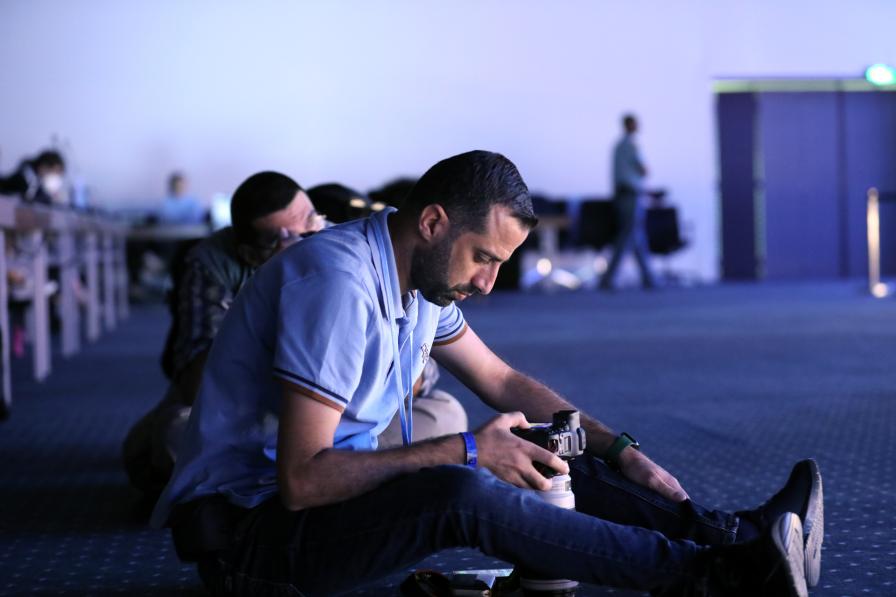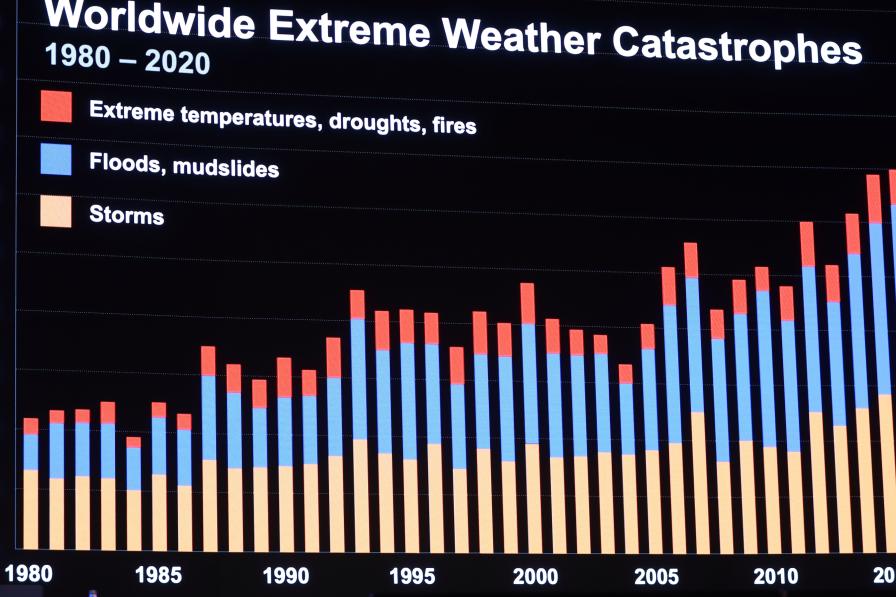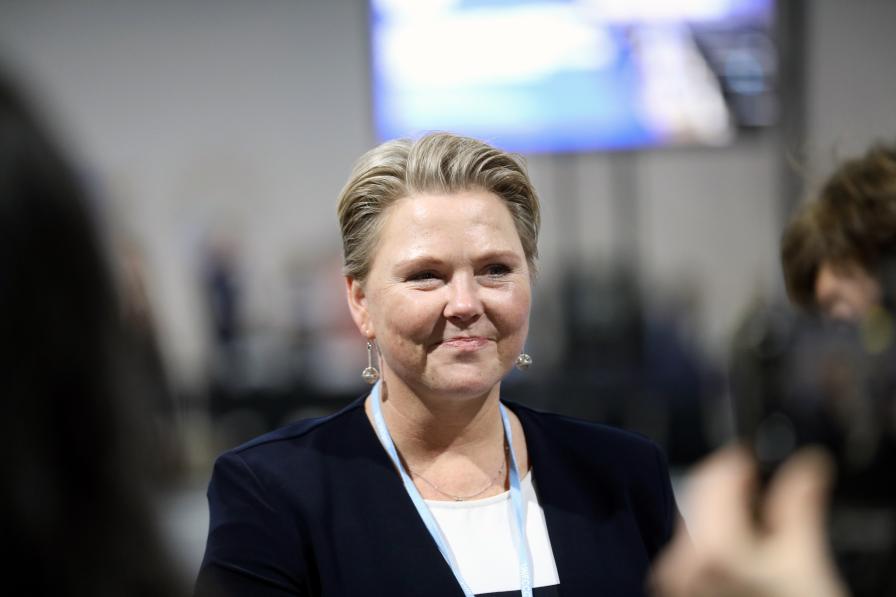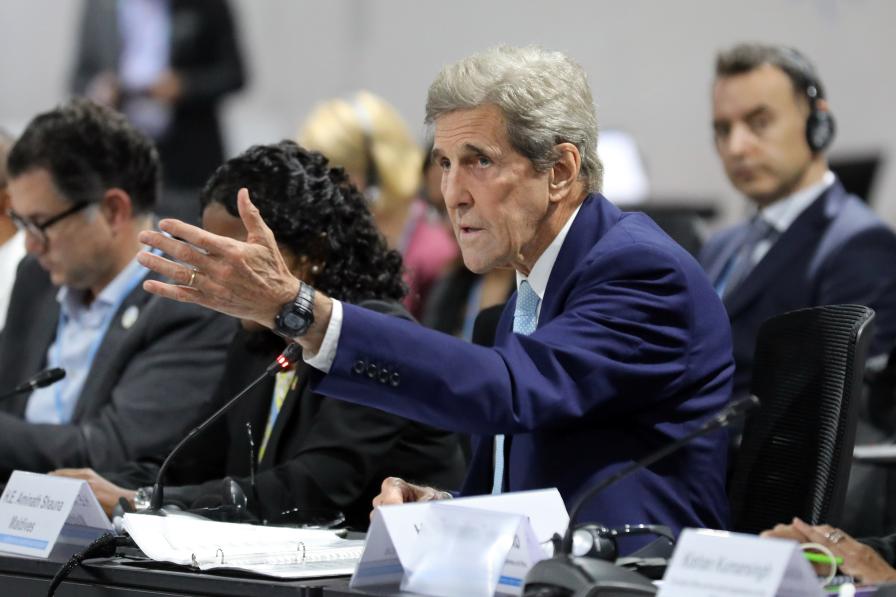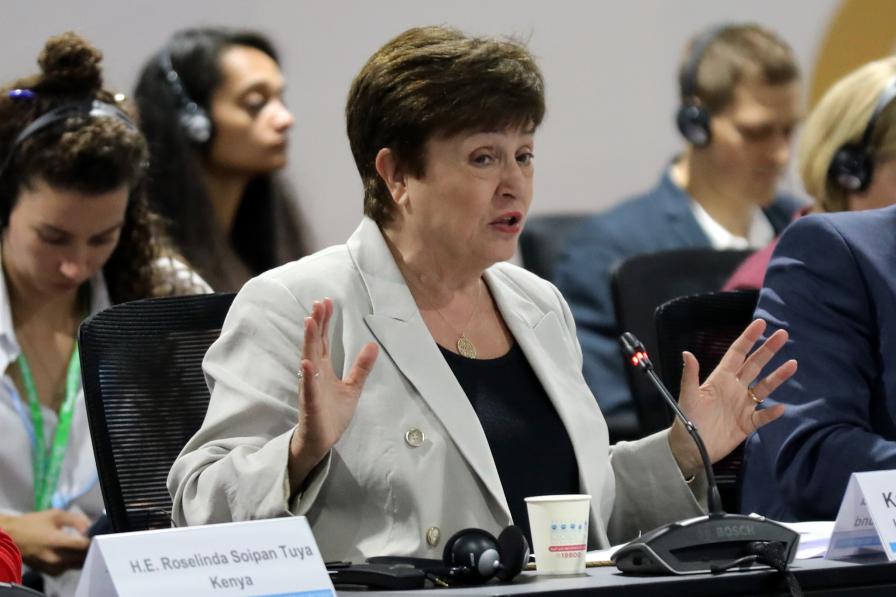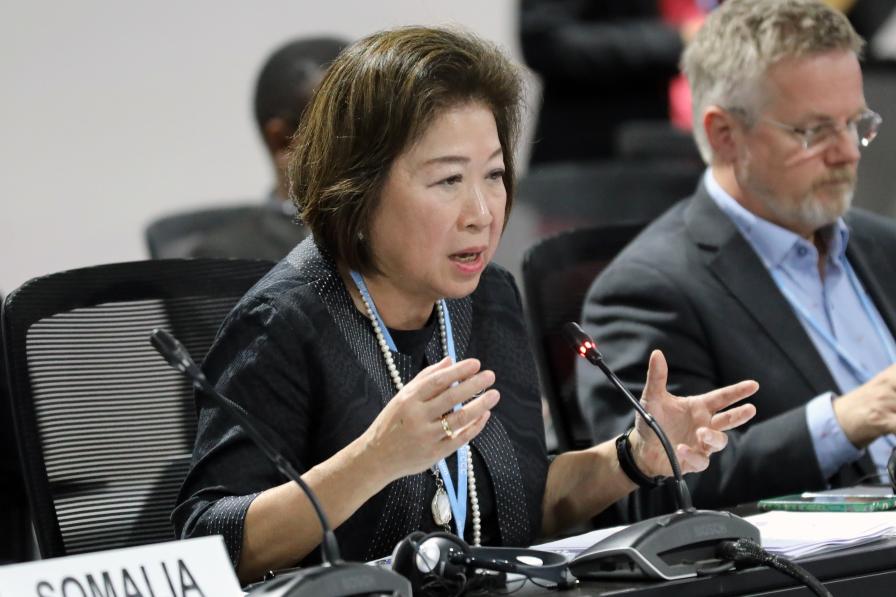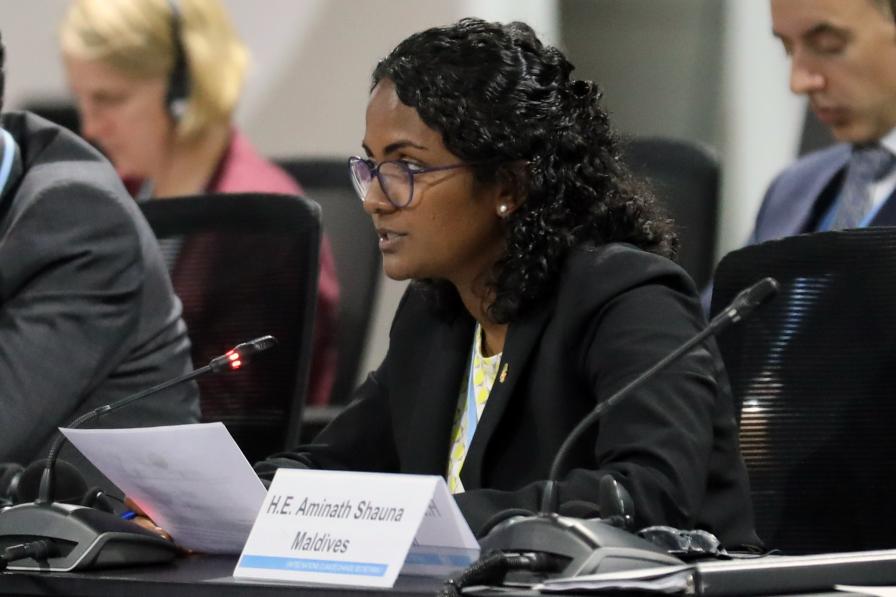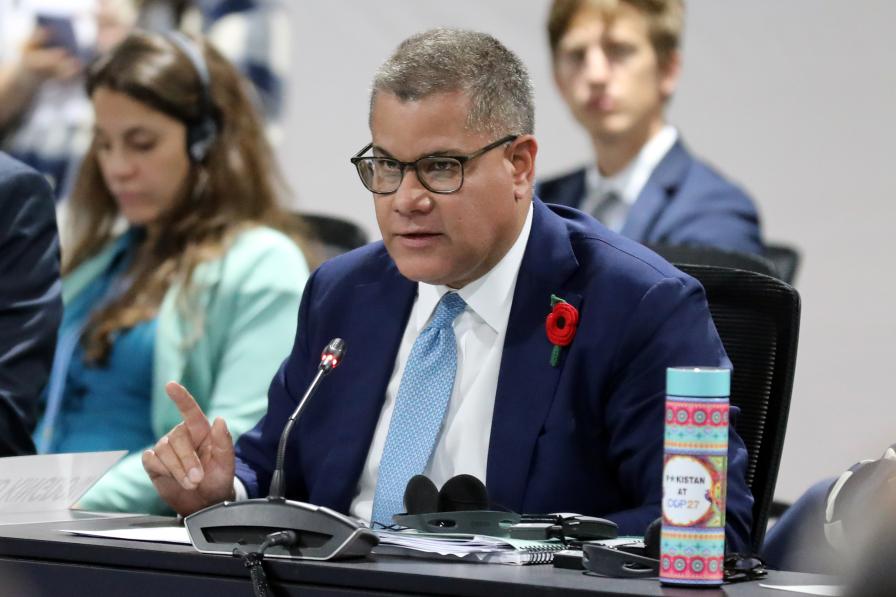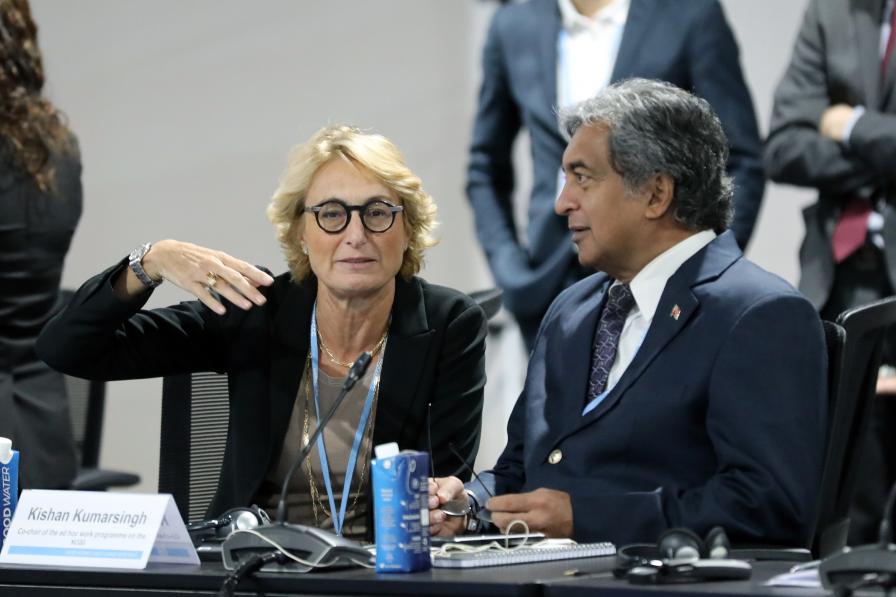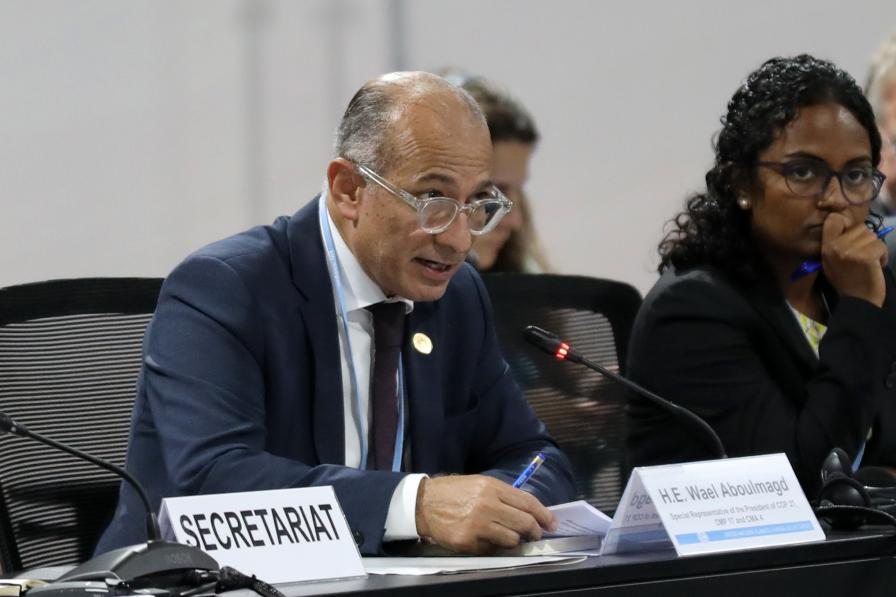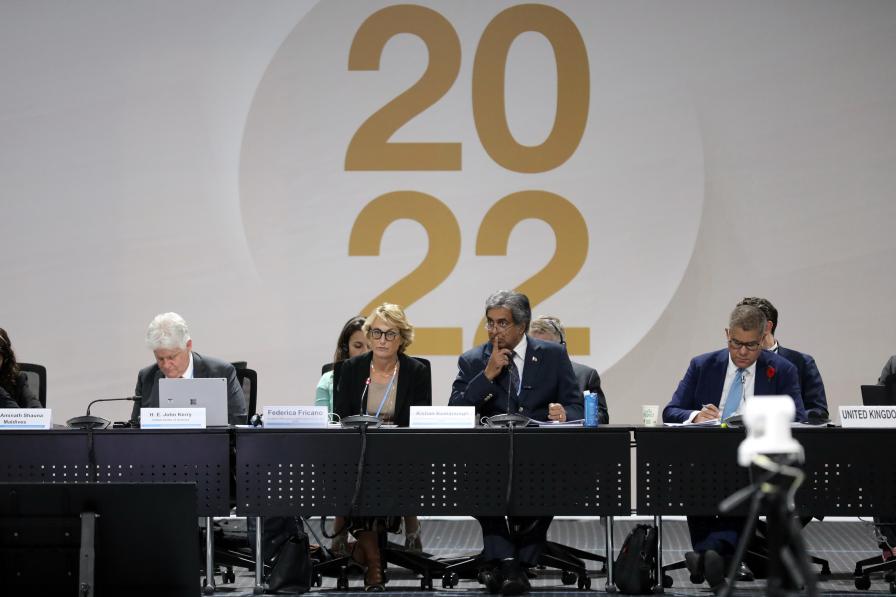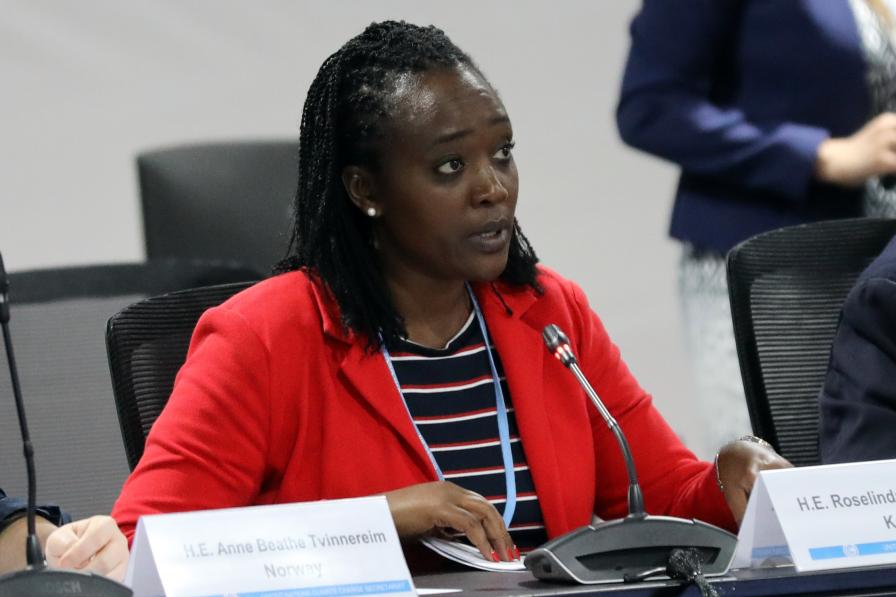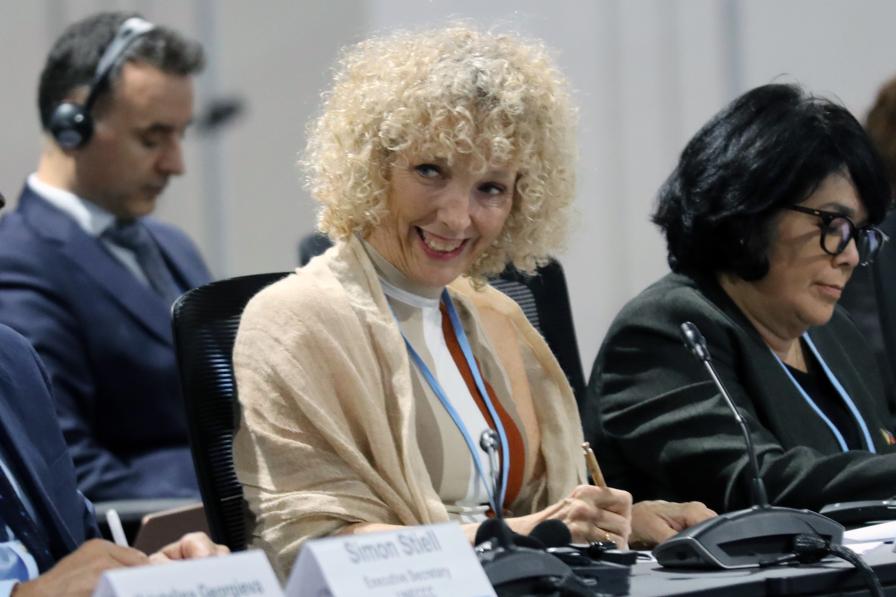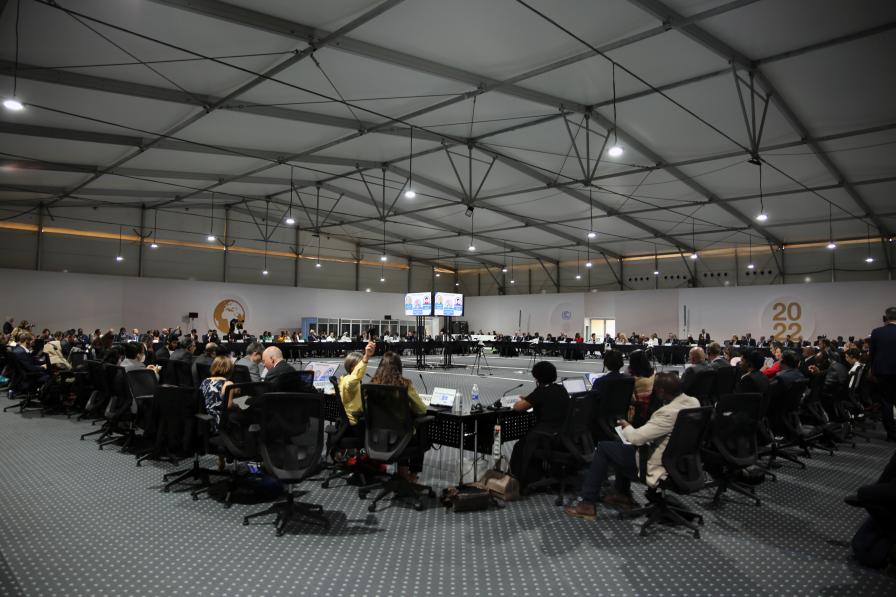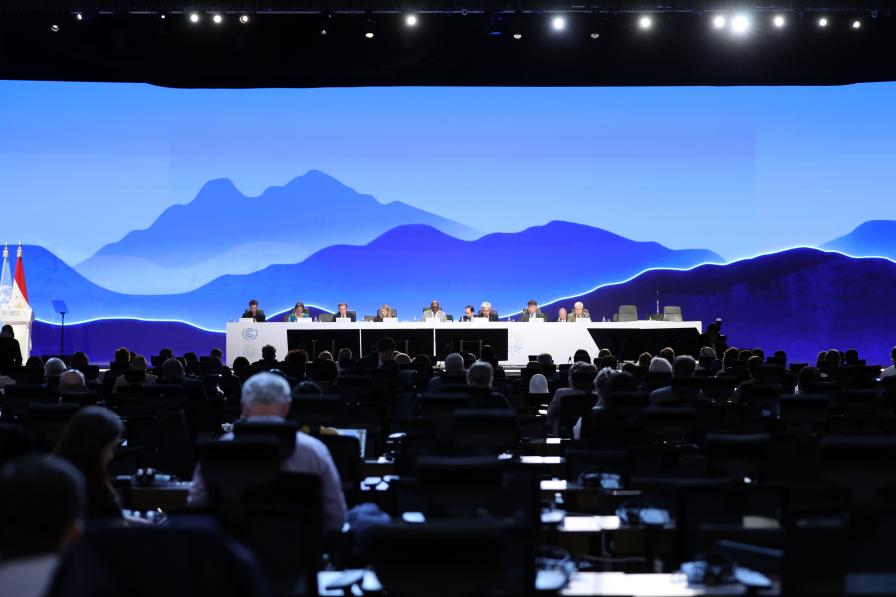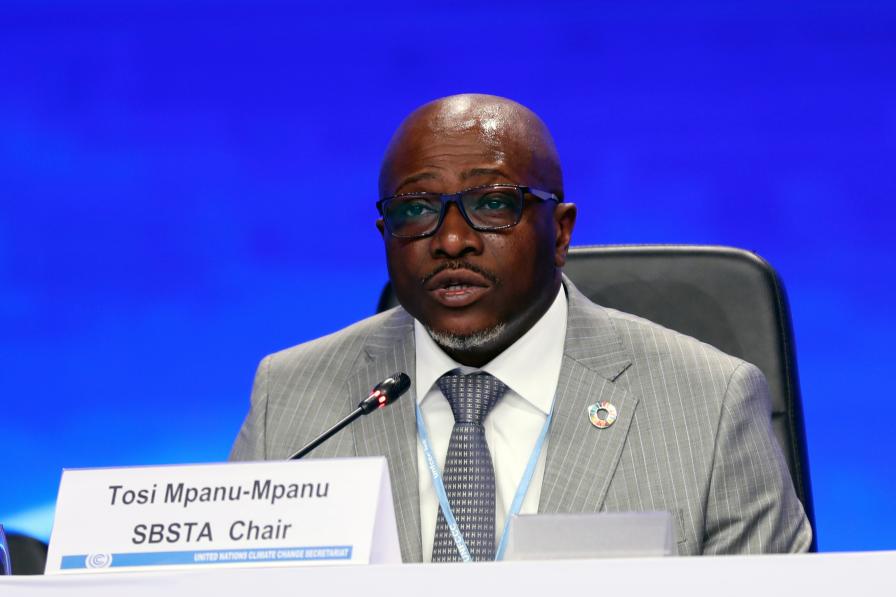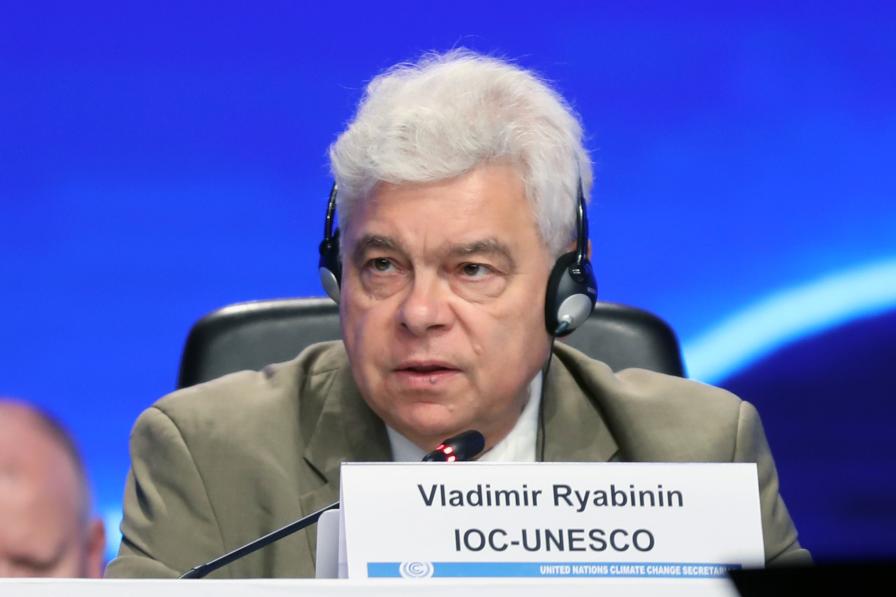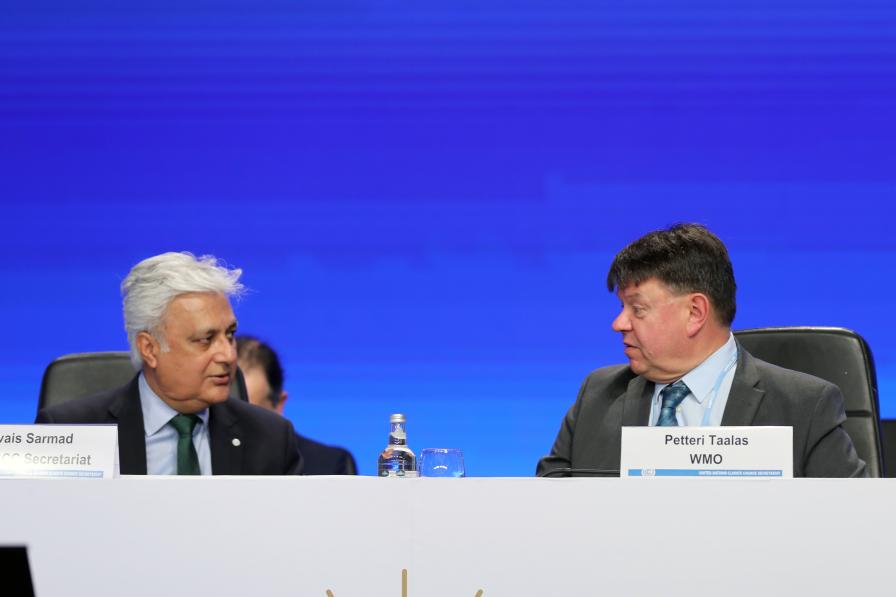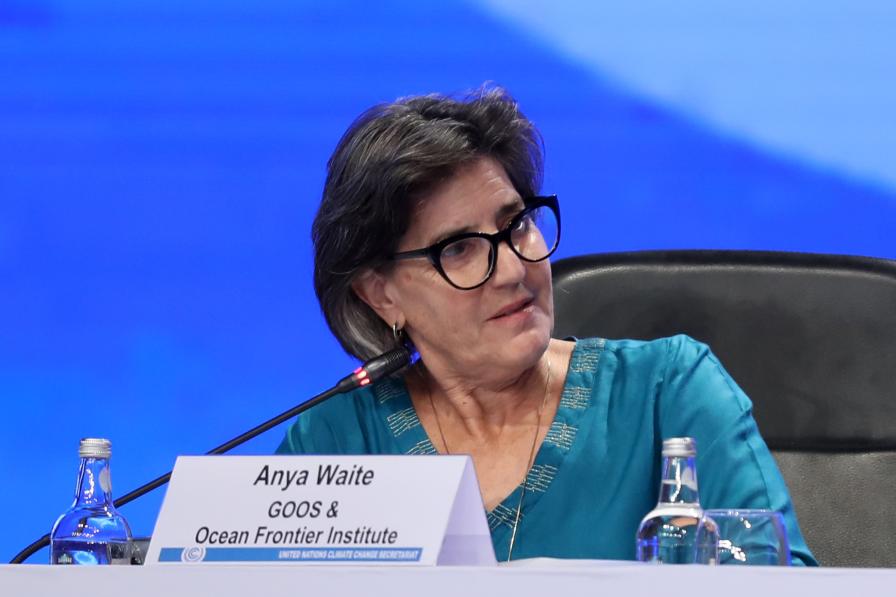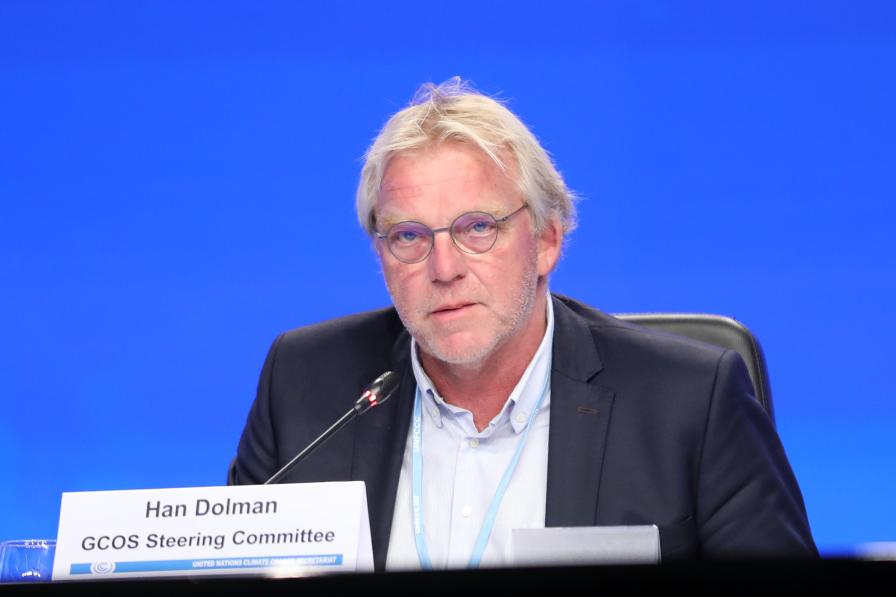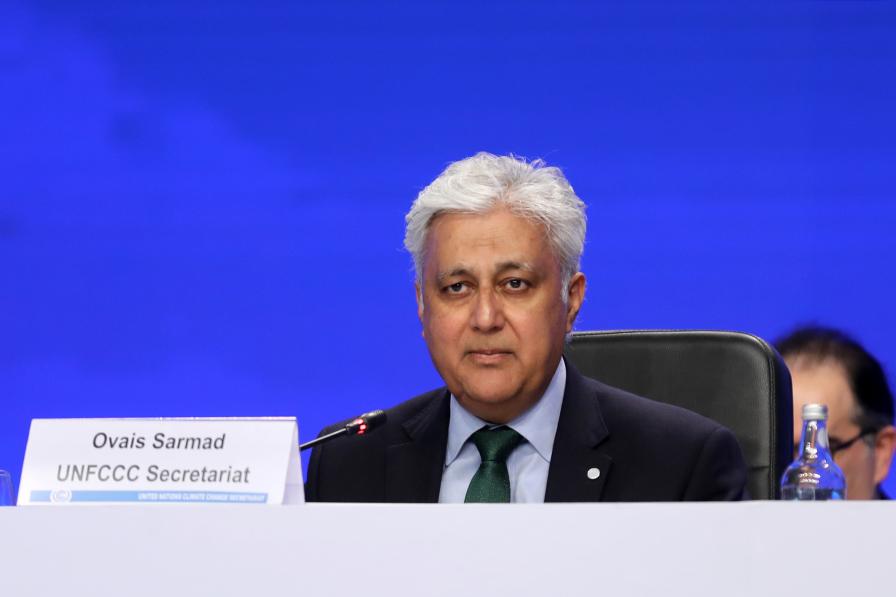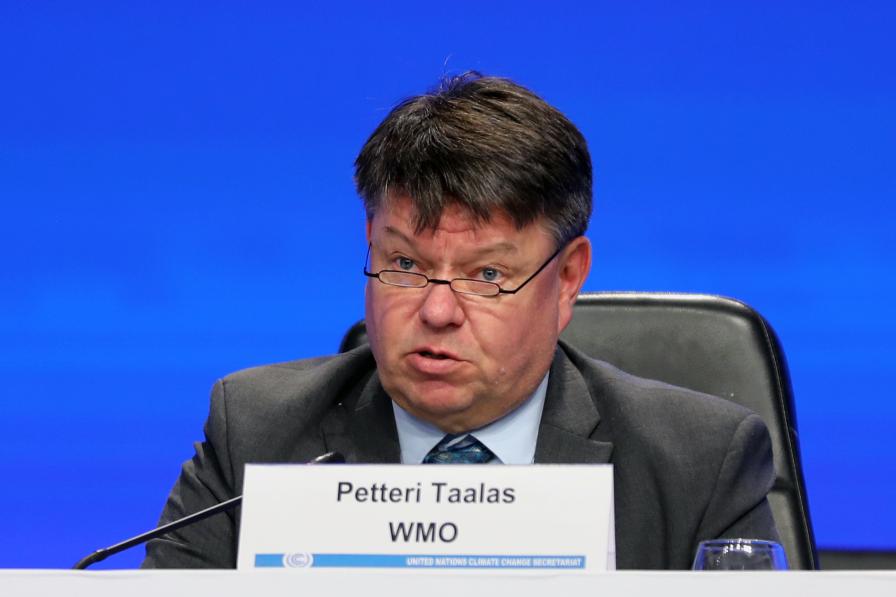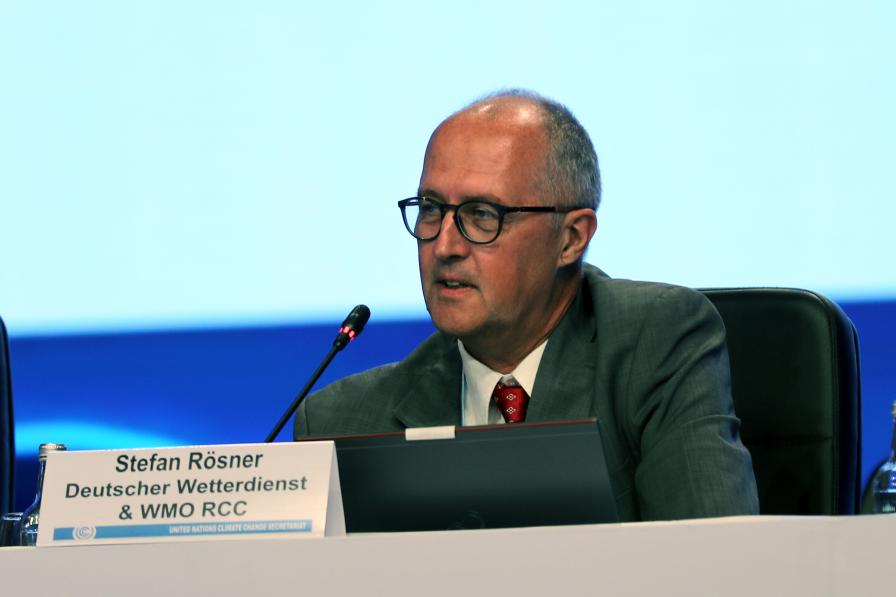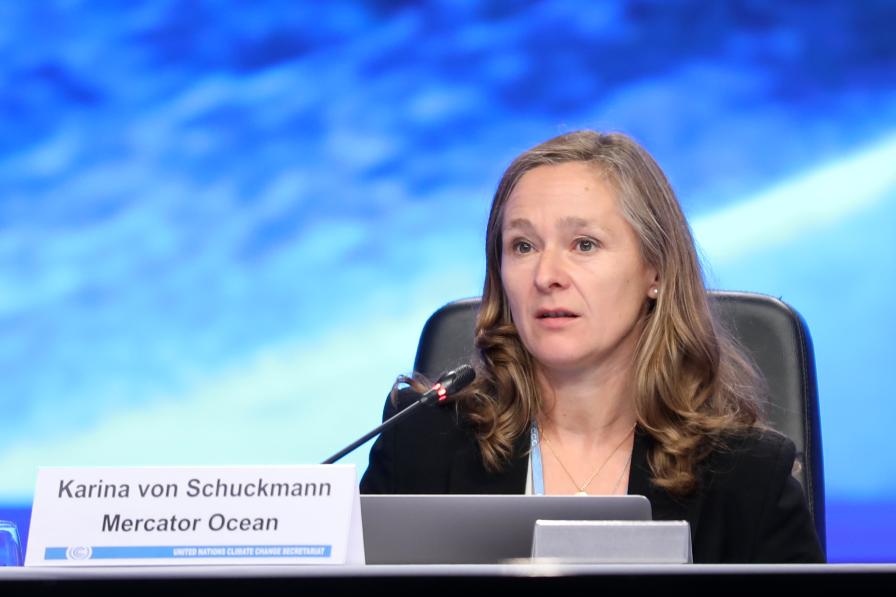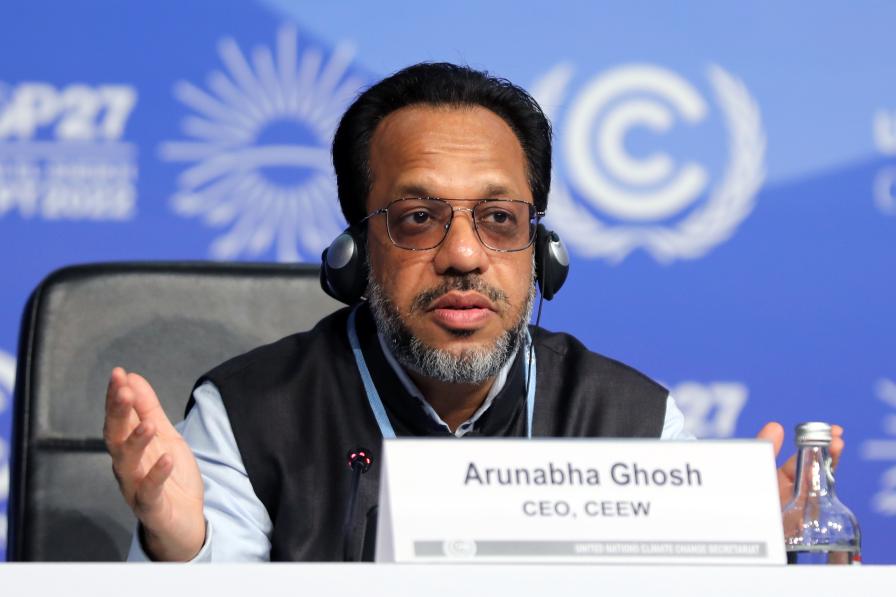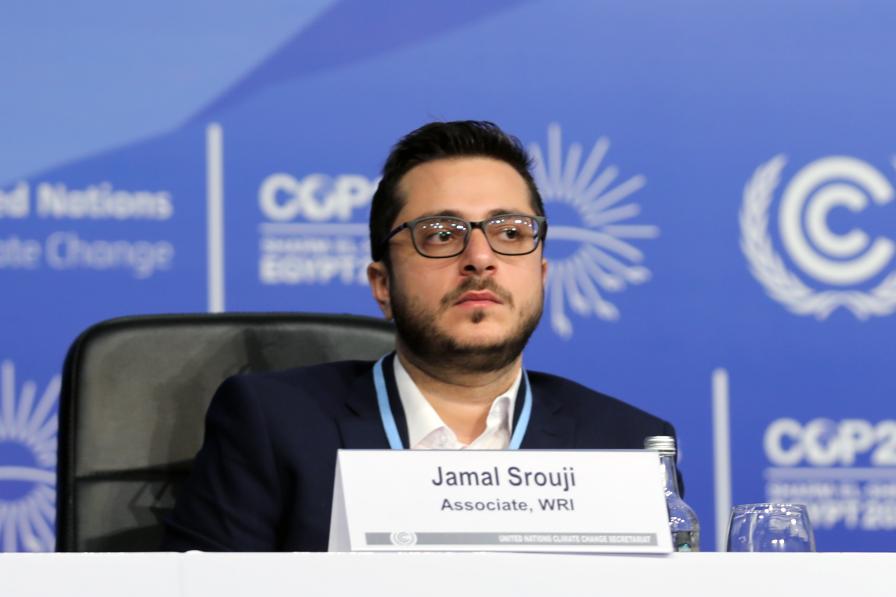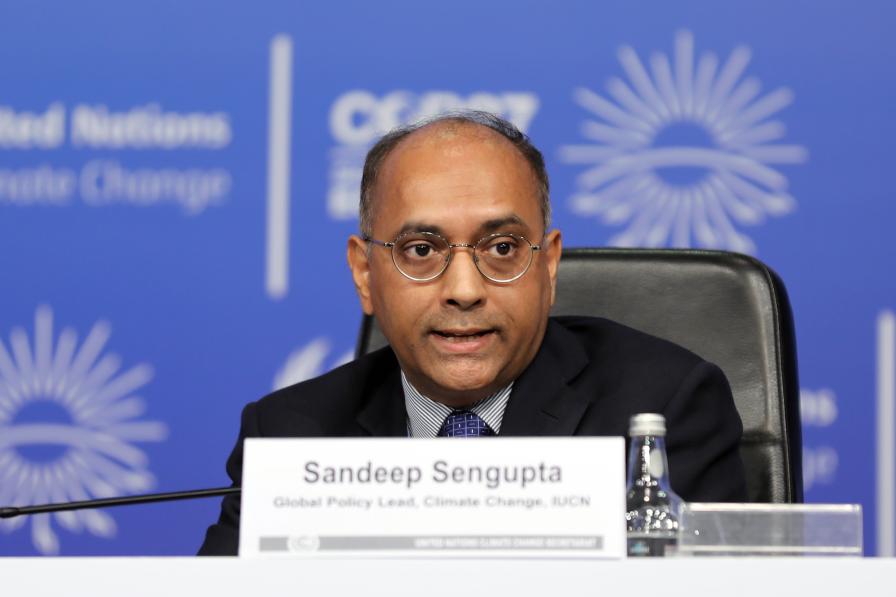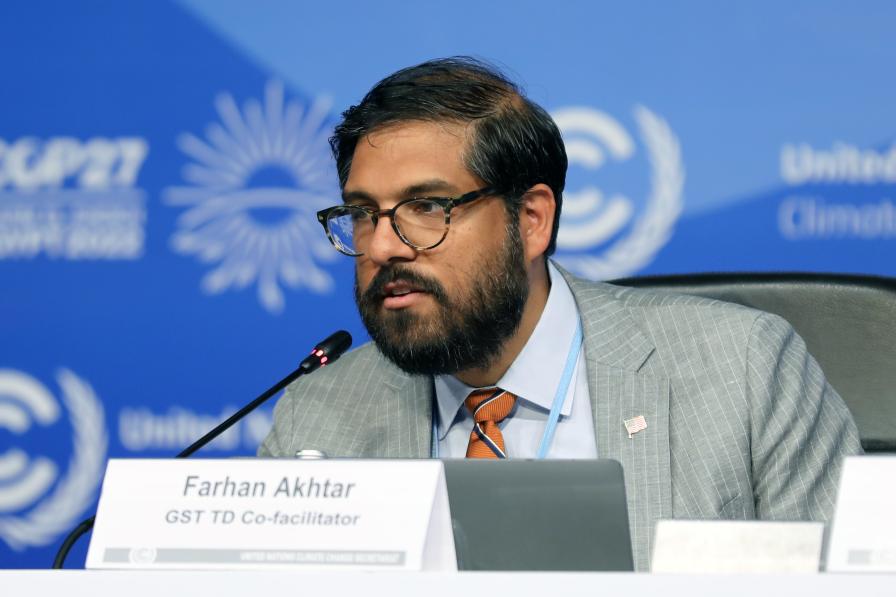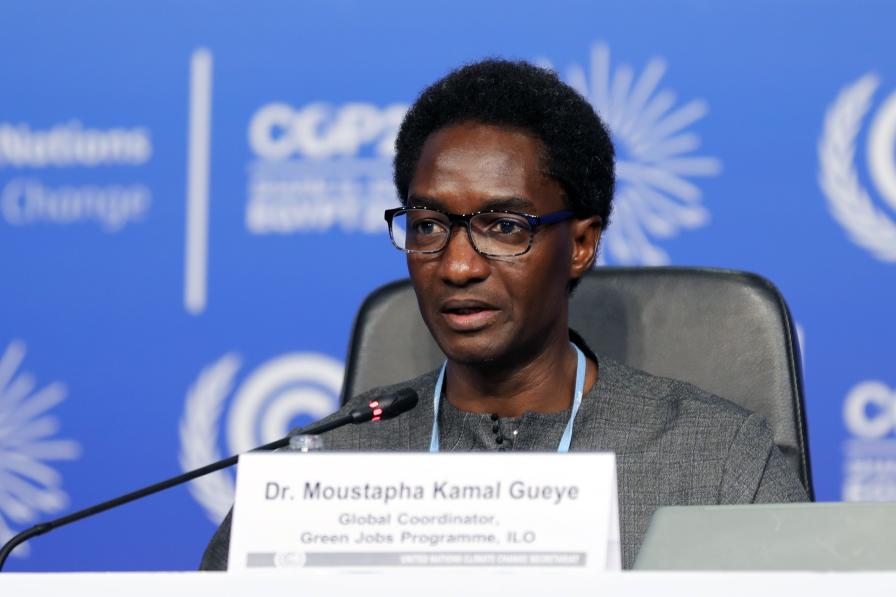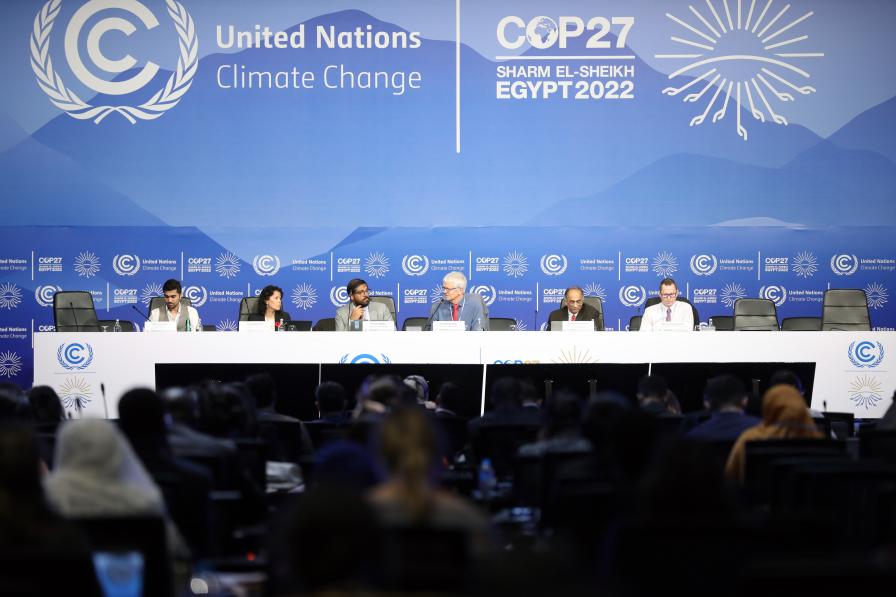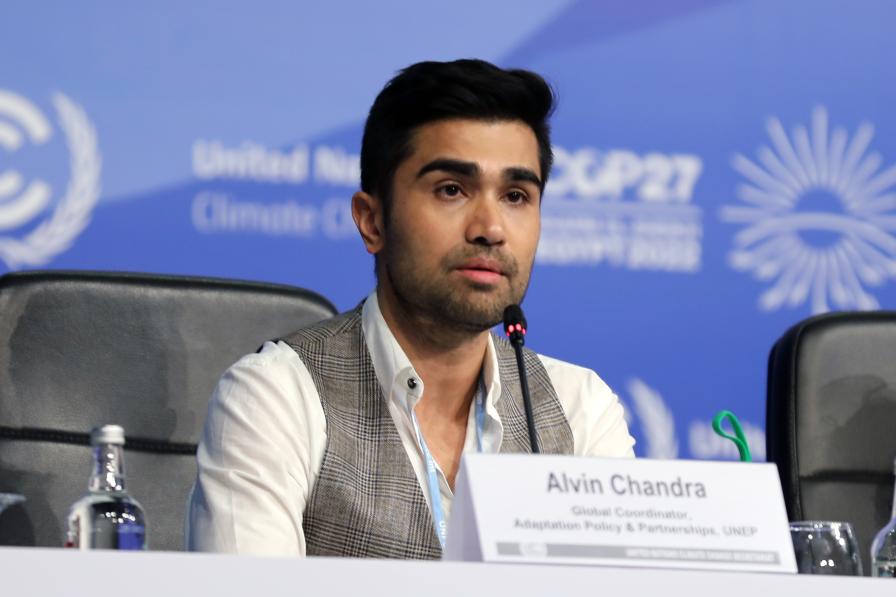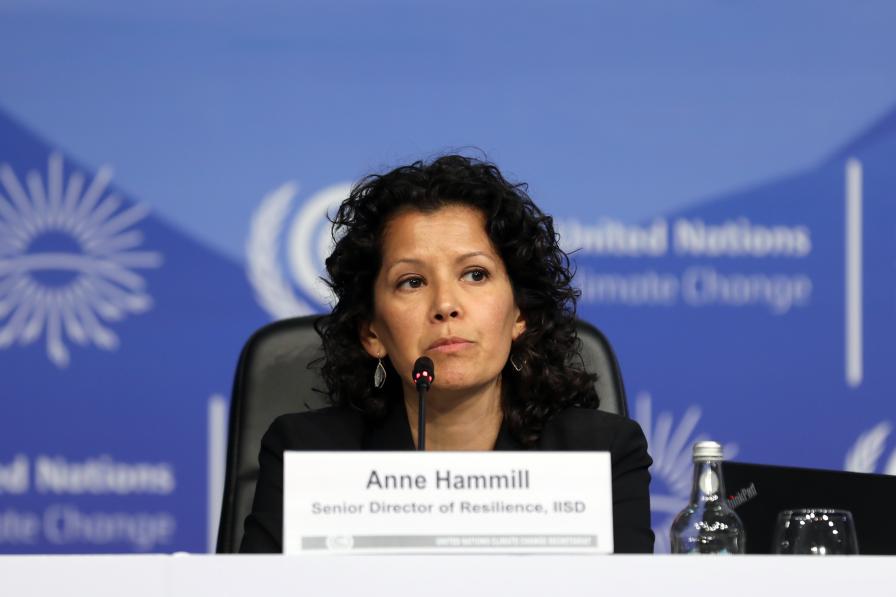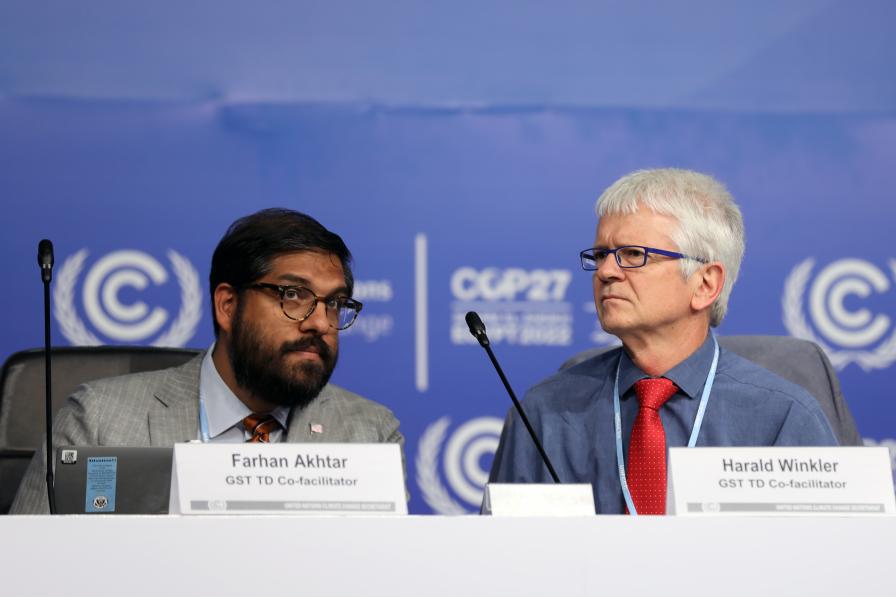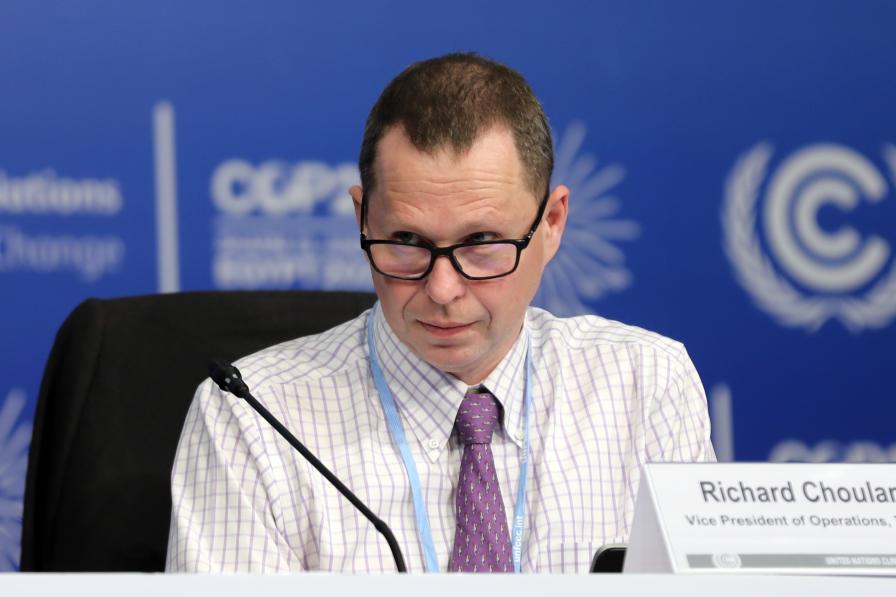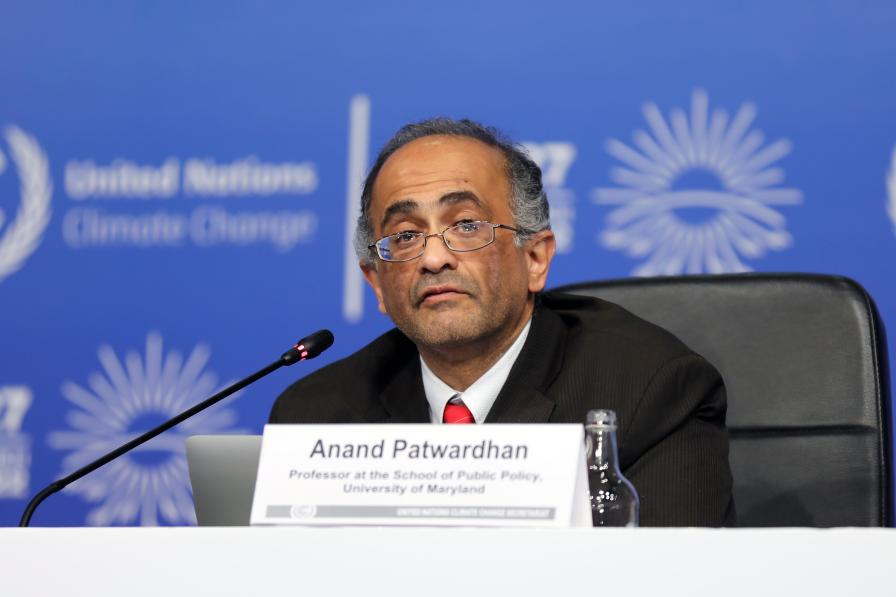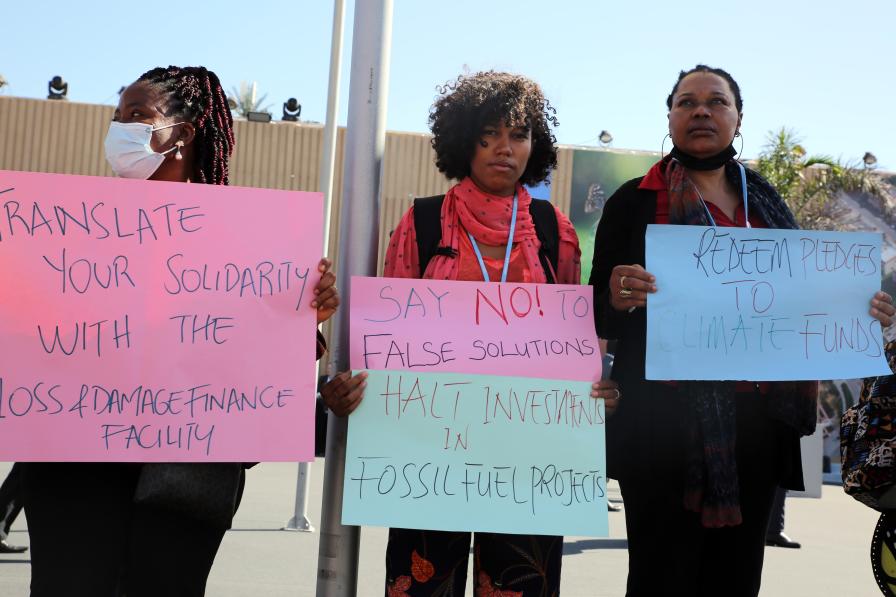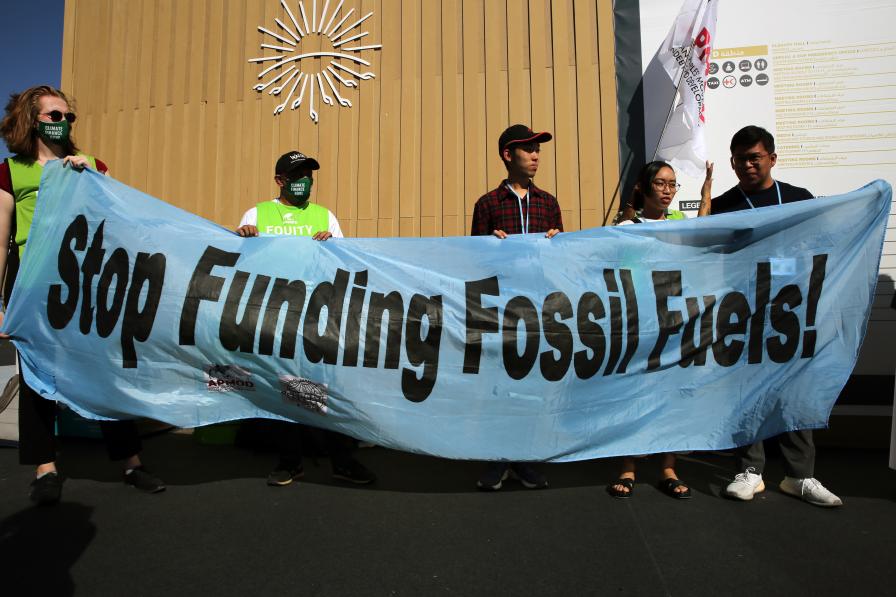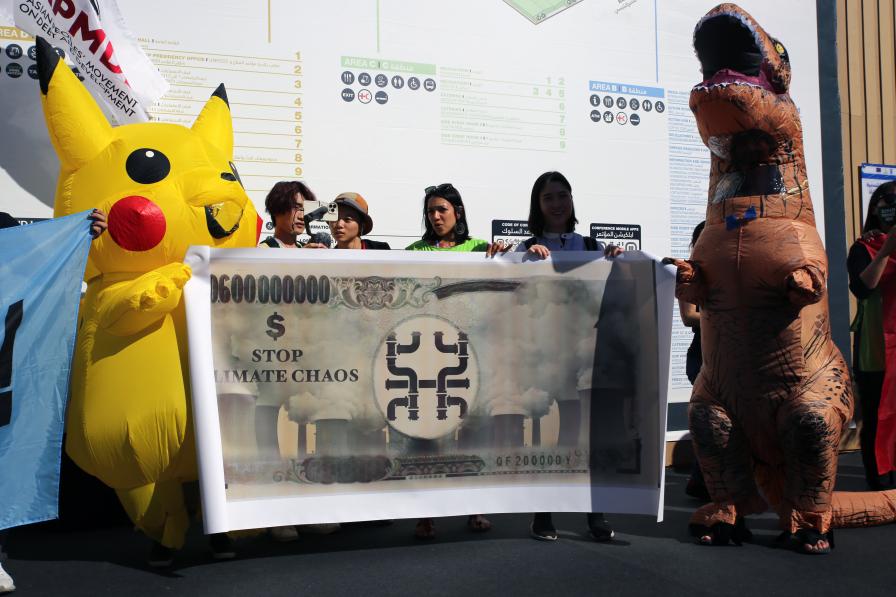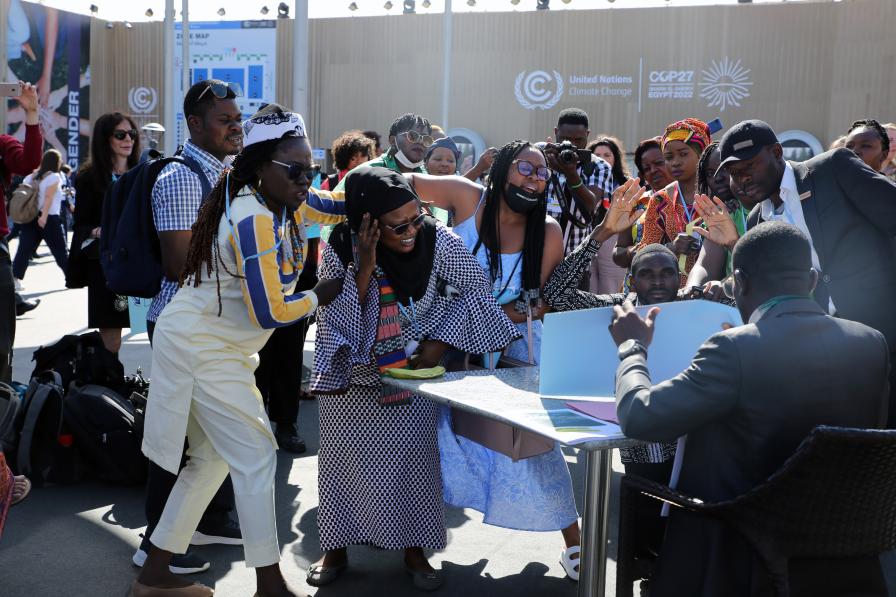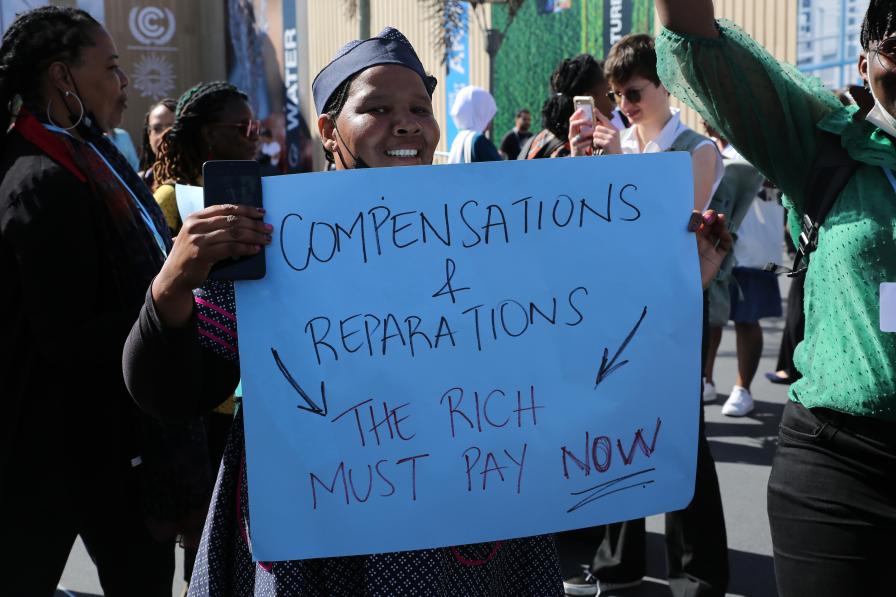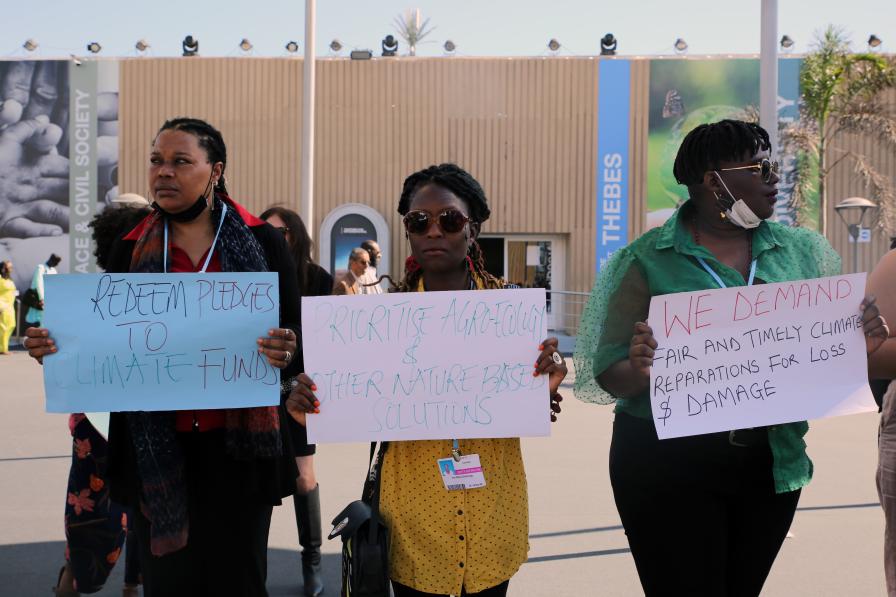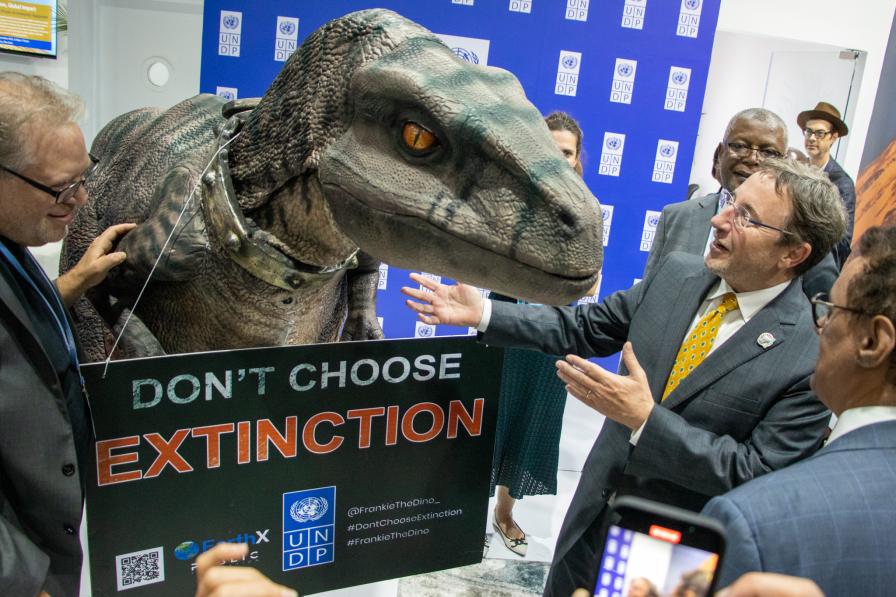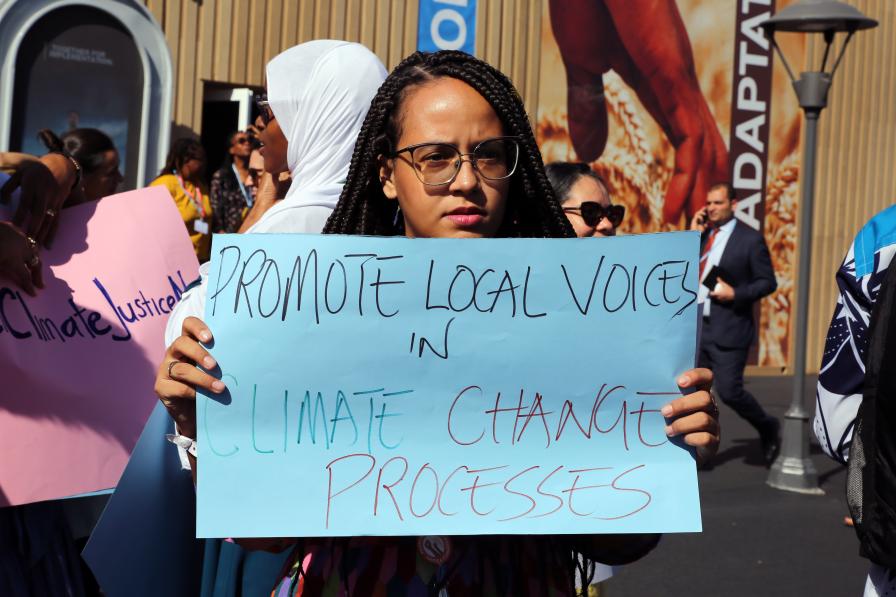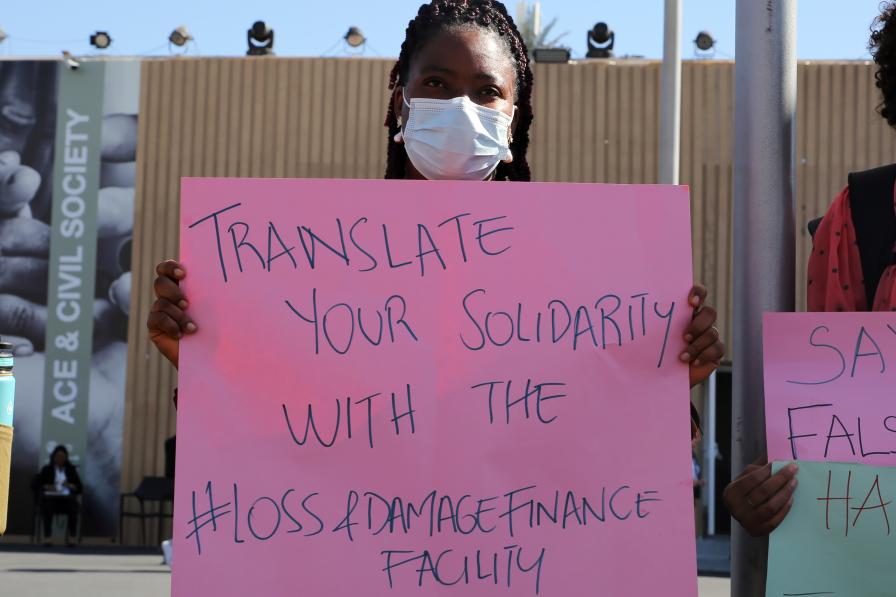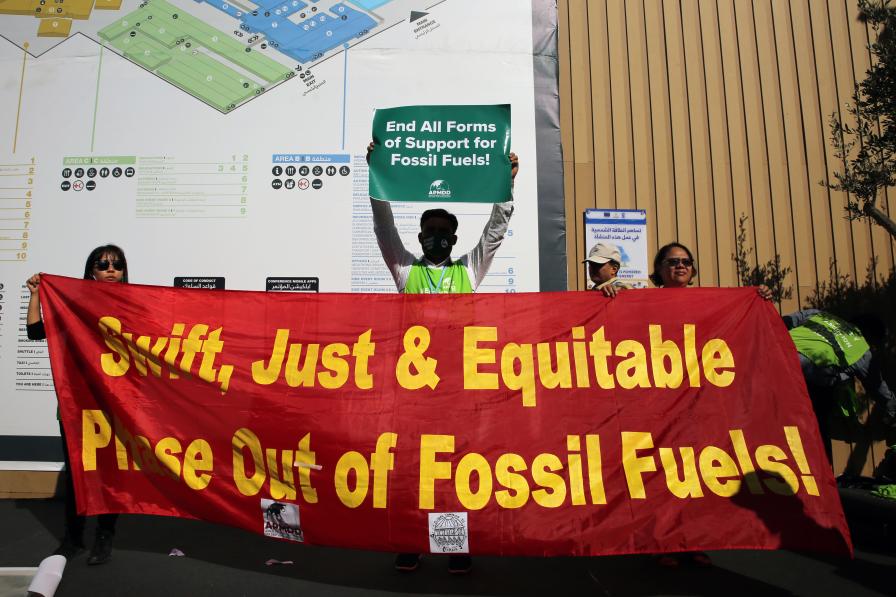The fourth day of the Sharm El-Sheikh Climate Change Conference was all about finance. Various side events explored finance-related issues, ministers discussed expectations for the new collective quantified goal on climate finance, and negotiators advanced work on the provision of guidance to climate funds.
With most Heads of State and Government having flown back home, civil society held their first few actions. Activists promoting vegan diets greeted delegates at the venue’s entrance and others flanked the pathway to plenary demanding climate justice.
Want to dive deeper? Read the full Earth Negotiations Bulletin daily report in English, Français, Español, 日本語.
2022 High-Level Ministerial Dialogue on the New Collective Quantified Goal on Climate Finance
Two things were clear: for one, the faulty track record on the delivery of the USD 100 billion annual goal looms large over the process for defining the post-2025 goal. Many developing country ministers underscored that the lack of finance imperils the implementation of the Paris Agreement, as support is key for enhanced climate action.
For another, the magnitude of finance needs is significant and growing, with estimates putting them in the trillions of dollars. Against this background, many developed countries emphasized the need to broaden the contributor base and focus increasingly on the mobilization of private finance. US Special Presidential Envoy for Climate John Kerry underscored “governments don’t have that kind of money.” Mari Pangestu, World Bank, pointed to work on mitigating actual and perceived investment risks to increase developing countries’ access to private capital.
Highlights included calls for:
- reforming the Bretton Woods system to ensure financial institutions adequately contribute to climate action;
- debt cancellation, with many developing countries underscoring this would free up fiscal space for them to enhance climate action; and
- setting the goal at a quantitative level that reflects the scale of funding needed to achieve the objectives of the Paris Agreement.
Negotiations
In technical-level negotiations too, developing countries expressed frustration over the lack of delivery by developed countries on their pledges. These include a target set in Glasgow in 2021 to “at least double” adaptation financing from 2019 levels by 2025. Developing countries also lamented slow processes in accrediting new implementing entities under the Green Climate Fund and getting projects off the ground, and what some felt were exclusionary eligibility criteria for receiving funding.
Article 6 negotiations continued throughout the day with delegates meeting in informal and “informal informal” consultations until late in the night. Although parties went through the text at a relatively quick pace, this did not necessarily reflect converging views. On several issues, parties simply repeated their preferred options, albeit with explanations for their positions. The facilitators continued to encourage dialogue among parties, asking for “bridging suggestions” to produce a compromise.
To receive free coverage of global environmental events delivered to your inbox, subscribe to the ENB Update newsletter.
All ENB photos are free to use with attribution. For the Sharm El-Sheik Climate Change Conference, please use: Photo by IISD/ENB | Mike Muzurakis
High-Level Ministerial Dialogue on the New Collective Quantified Goal on Climate Finance
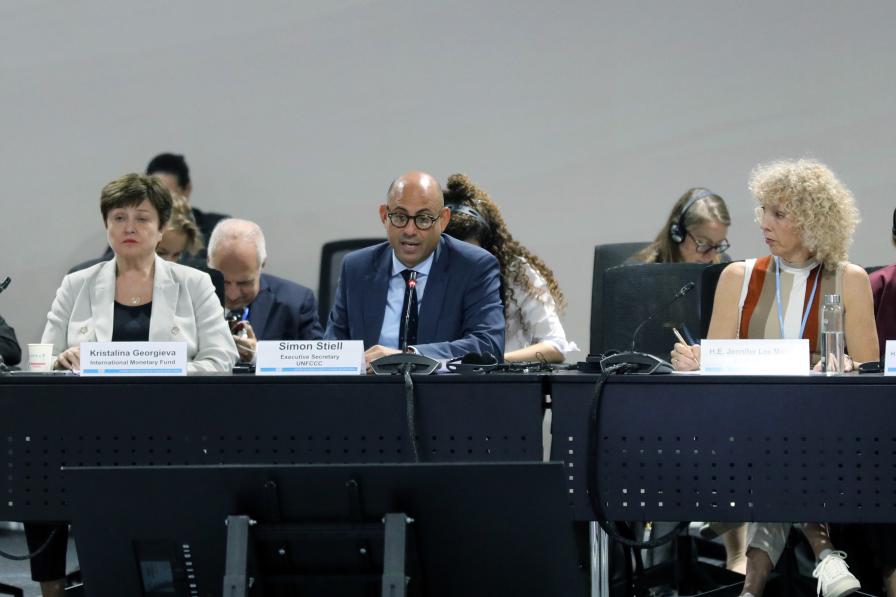
From L-R: Kristalina Georgieva, Managing Director, International Monetary Fund (IMF); UNFCCC Executive Secretary Simon Stiell; and Jennifer Lee Morgan, State Secretary and Special Envoy for International Climate Action, Germany
